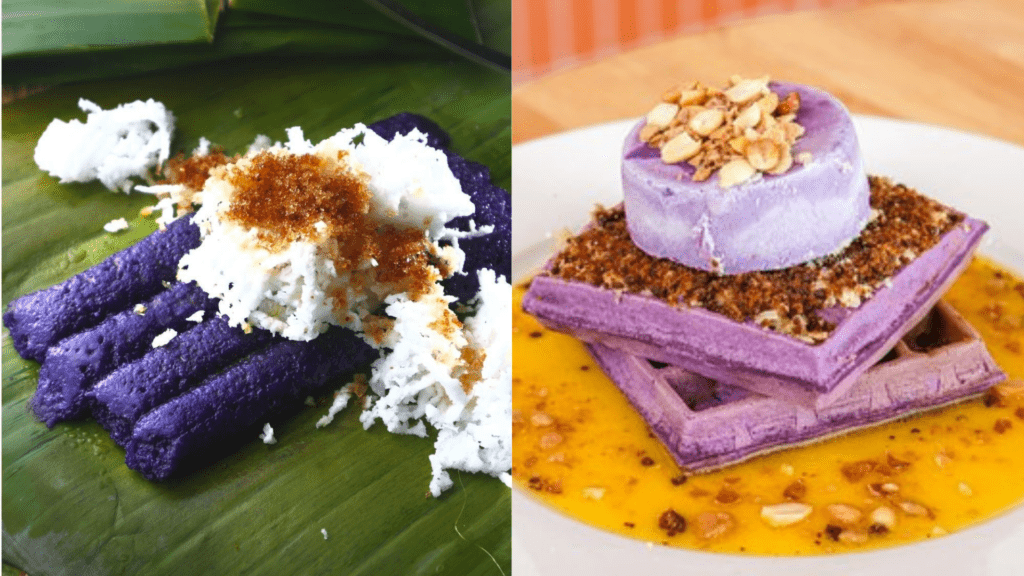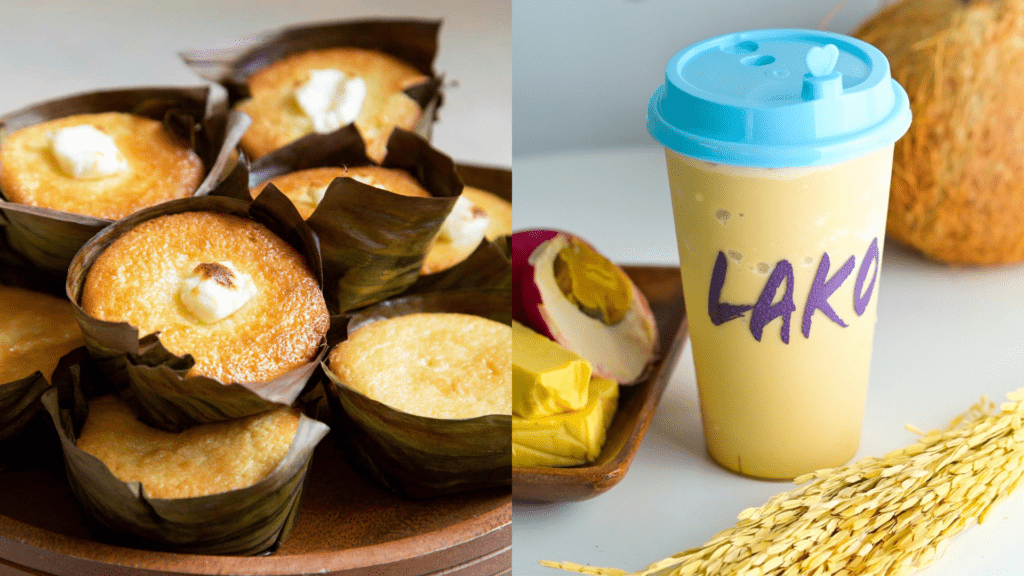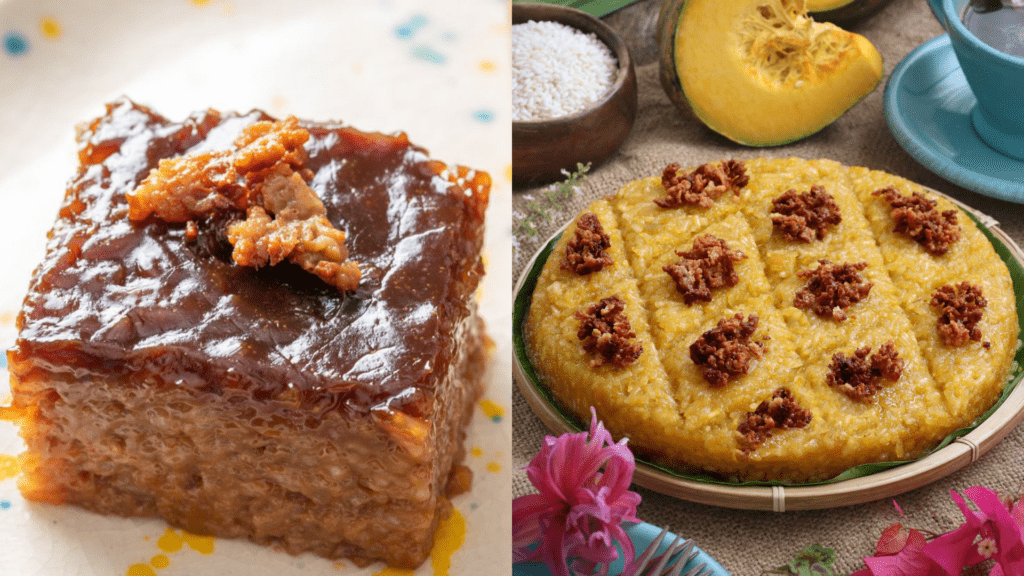4 Pinoy Christmas Kakanin with a Twist!

Fluffy, colorful, and sticky — these are how we could commonly describe kakanin (rice cake). Derived from two Filipino words “kain” (eat) and “kanin” (cooked rice), it has been an “umbrella term” for tasty treats made out of glutinous rice and coconut milk.
As an agricultural and tropical country, among our major products includes rice, which is a staple food of Filipino households.
As part of the country’s rich tradition, our very own Pinoy rice cakes can’t be missed out on the table. Kakanin is present on almost every occasion, especially the Christmas season. The aroma of fresh rice cakes spread along with the spirit of the holiday.
However, having “bold” and creative cuisine, Filipinos will never run out of innovative ideas — and yes, that includes kakanin. So, let’s see how these classic delicacies have been reinvented into the next level!
Puto – Bumbóng Waffle
First on our list, the purple rice cake we crave after attending “Simbang Gabi.” No other than puto-bumbóng! Traditionally made by pouring the concoction and steaming into a bamboo tube. Then, served with grated coconut and muscovado sugar, it’s undeniably worth trying.

But with its level-up version, it comes through a waffle maker. The dessert is based by ube (purple yam) waffles and topped with bukayo (sweetened coconut stips) and crushed nuts. Ending with a scoop of ube ice cream while bathing in a butter sauce.
If you would like to try this dessert, it is available at Oink at Rockwell Sheridan and Goto Monster.
Bibingka Shake
When it comes to food after night mass, we can’t leave out this round and spongy rice cake. Unlike other rice cakes, bibingka uses galapong (rice flour) along with other ingredients such as coconut milk, butter, and sugar. In a container with banana leaves, the mixture places between terracotta and lit charcoals.

However, the local shop, Lako, transformed how we take this classic kakanin. Instead of using utensils, you can now slurp the taste of bibingka! Similar to the original version, it even also has salted duck egg (itlog na maalat).
Curious about what it tastes like? Their store is located at Yangco St. Barangay 168, Gagalangin, Tondo, Manila. You can check out their Facebook page for more information.
Sapin-Sapin Cupcake
With its name derived from the Filipino word “sapin” which means layer, expect to come across many tastes at once. Ranging from purple, white, and yellow, each layer has its distinct flavor: ube, jackfruit (langka), and macapuno. With that, sapin – sapin will not only fill your stomach but will feast your eyes as well.

But how will this multi-colored rice cake turn out if added to a cupcake? Well, American-based shop Maria and Isabel’s got us covered. Aside from sapin-sapin, they also make other innovative pastries based on Filipino desserts such as halo-halo, and turon. Ideal for Filipinos who miss local treats.
Biko Kalabasa
Last but definitely not least, this sweet sticky rice cake will definitely not miss the game! Served at almost any time of the day, may it be at a birthday party, fiesta, or just simple merienda. Among other rice cakes, the signature of biko is its brown-sugar color and taste.

However, different variations have mushroomed in the country, one of them being with squash flavor. Adding a healthy alternative ingredient gives a new take on the sweet delicacy. But of course, still with its all-time kakanin pair, latik (coconut curds). If your child doesn’t want to eat vegetables, then maybe this can do the trick.
If you want to try it at home, there are various recipes you can follow online.
Do you know other reinvented Pinoy rice cakes? Share it with us!
Sheldeen is a writer who loves to watch series and to play with her dogs in her free time — ways to pause and take a break.






